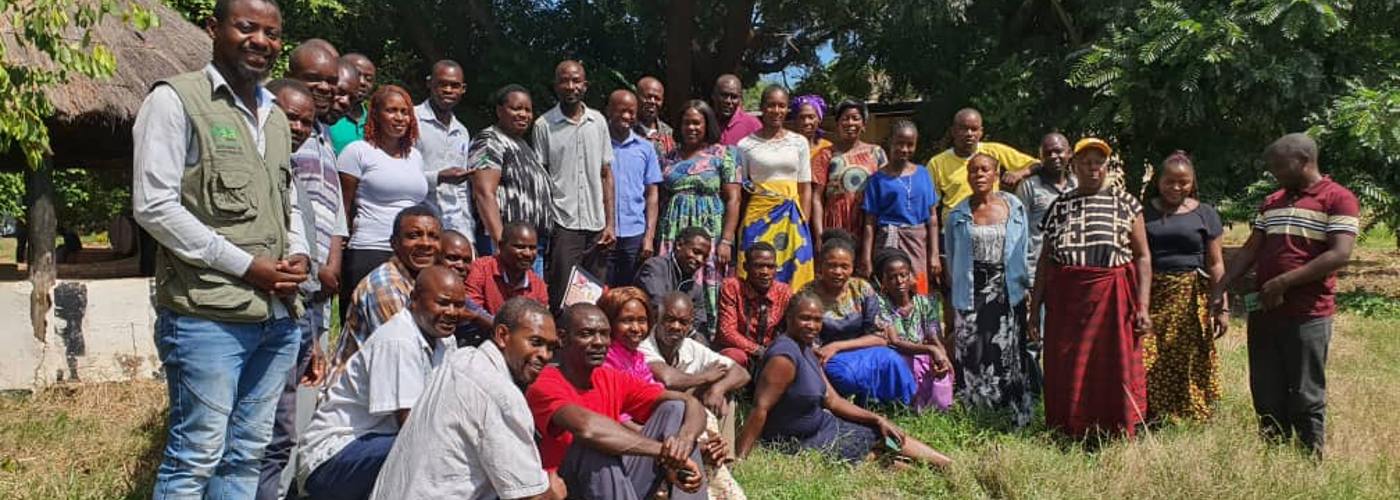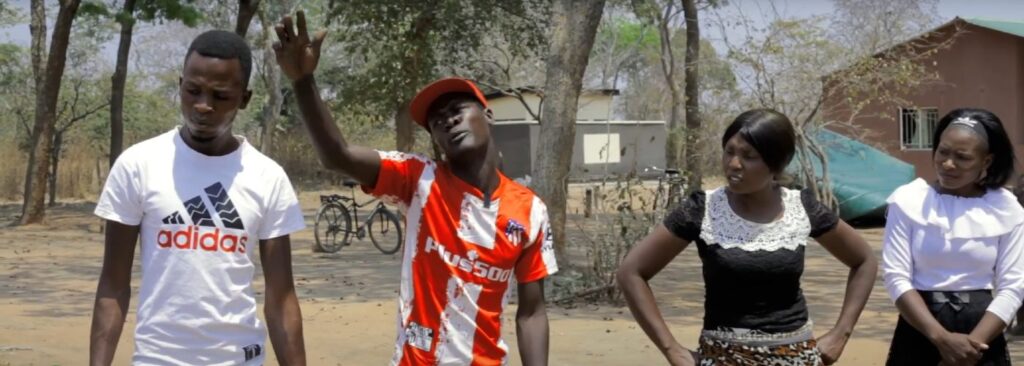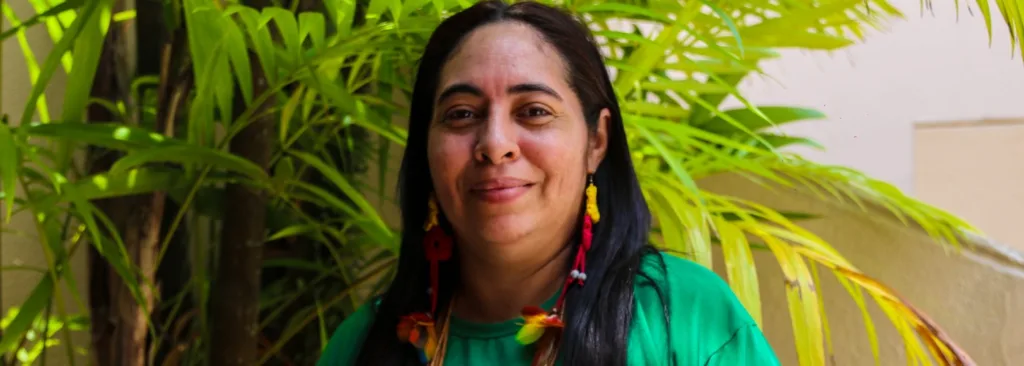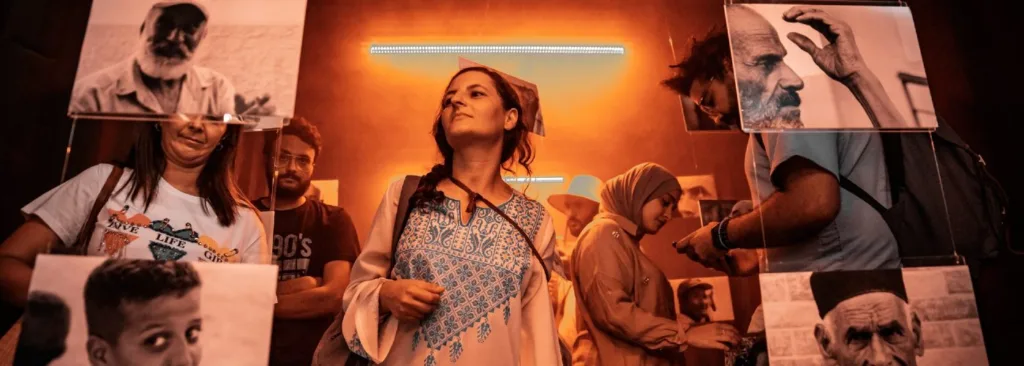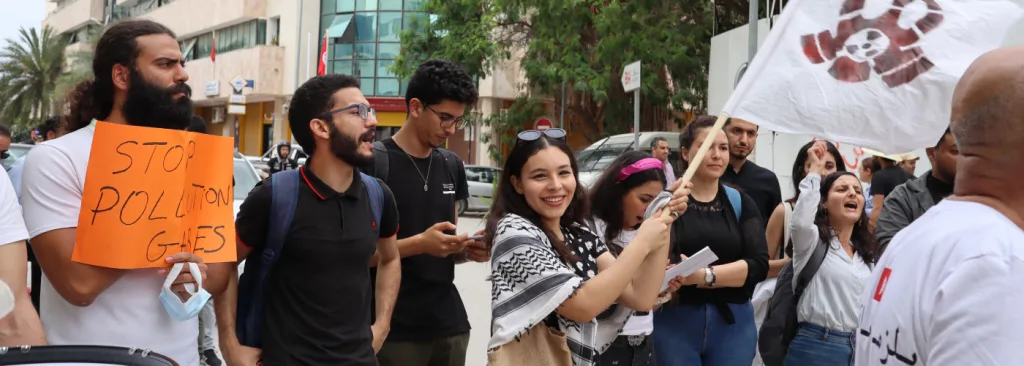Building the climate change resilience of Zambian smallholder farmers
Many smallholder farmers in Zambia rely on artificial fertilizer to increase yields. But since it is expensive, they depend on the government for subsidized fertilizer. In the 2023-2024 farming season, over a million smallholder farmers received 268 million euros worth of farming inputs, most of it fertilizer.
The artificial fertilizer is mostly imported, which means high, rapidly changing international prices can affect supply. Climate change only further increases Zambian farmers’ vulnerability.
To help reduce this dependency on harmful artificial fertilizer, Hivos works with Civil Society for Poverty Reduction (CSPR), a Zambian organization that trains women farmers in sustainable organic farming methods. To date, almost three hundred women have followed training to both produce organic fertilizer and grow climate resilient crops. We do this together with the Kasisi Agricultural Training Center.
Seed banks
Thirty farmers affiliated with CSPR have established six community seed banks to preserve seeds of local crops that are relatively resilient to drought and climate change. This safeguards seed diversity in the future – and that diversity can mean increased food security when diseases or pests (often driven by climate change) threaten a particular type of crop. Local seeds also easily fit into existing ecosystems and can adapt to (climate) changes within that ecosystem.
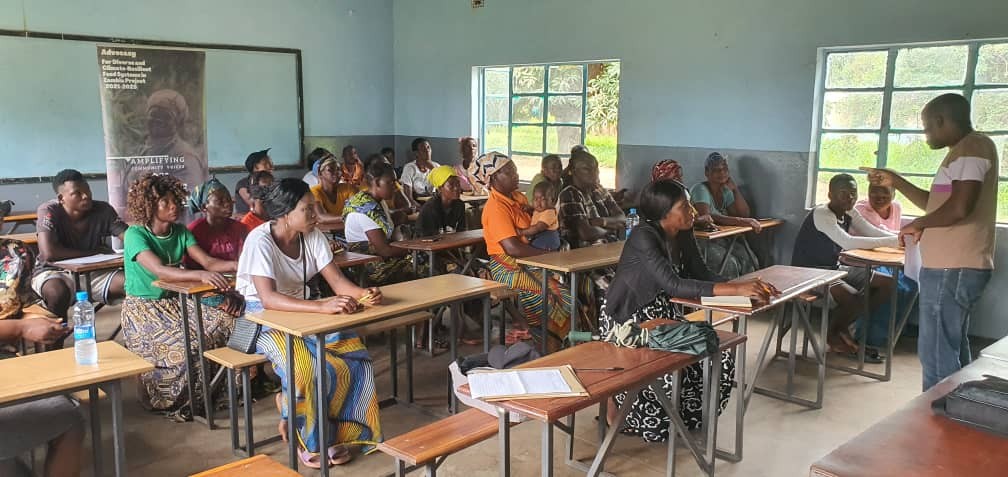
A two-pronged approach
CSPR uses a two-pronged approach to transform Zambian agriculture. Besides working with women and local communities to change farming practices, they also lobby the government and parliament for policies that improve the resilience of farmers. CSPR even writes policy briefs for the government, and has given input during the drafting of National Development Plans and the 2023 climate change bill.
Funding to upscale local initiatives
Another aspect of the CSPR training for local women focuses on how to lobby for better legislation so they can, for example, access Constituency Development Funds. These are local community budgets that let them upscale their local farming activities and develop alternative sources of income. The funds are also good for climate change adaptation investments, like water boreholes and other infrastructure.
Supporting women and local communities around the world
Our work with local partners like CSPR aims to have women and local communities around the world take the lead in debates and policy-making on climate change. Their lived experiences can make government policy more inclusive, while diverting climate finance to local communities makes climate action more effective. Climate change is unfair: it affects some people much more than others. So we invest in solutions that are just.
About Voices for Just Climate Action
The Voices for Just Climate Action (VCA) program, initiated in January 2021, is a lobby and advocacy program implemented by an alliance led by four strong Southern CSOs: Akina Mama wa Afrika, Fundación Avina, Slum Dwellers International and SouthSouthNorth, and two Global CSOs: Hivos and WWF-Netherlands. It falls under the Dutch Ministry of Foreign Affairs’ five-year strategic partnership: “Power of Voices.” The program aims to ensure that by 2025, local civil society and underrepresented groups will have taken on central roles as creators, facilitators, and advocates of innovative and inclusive climate solutions.

